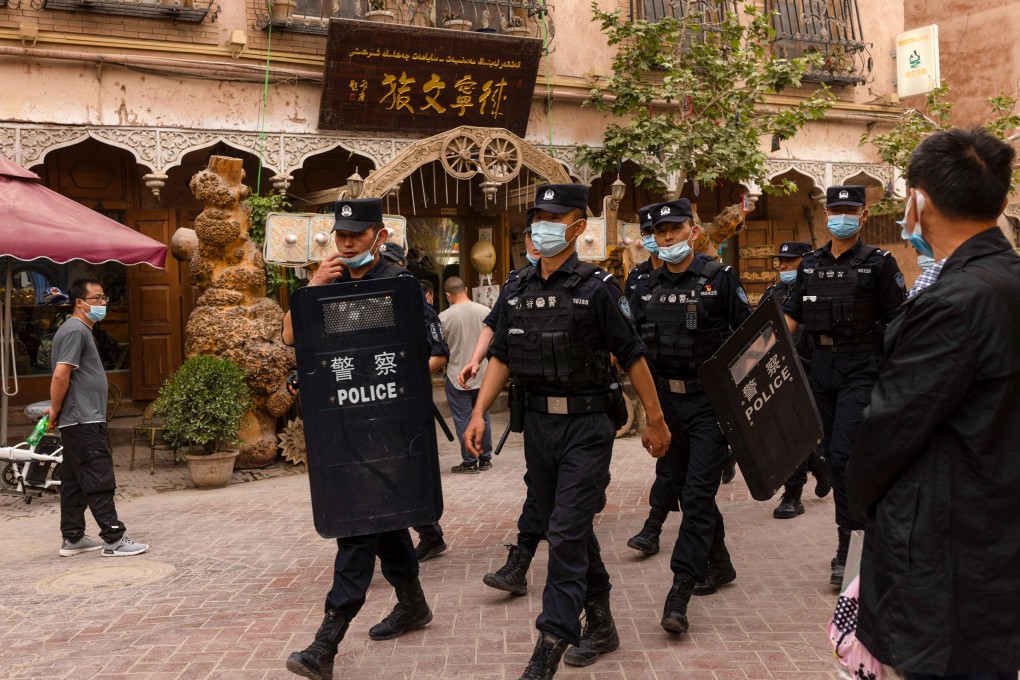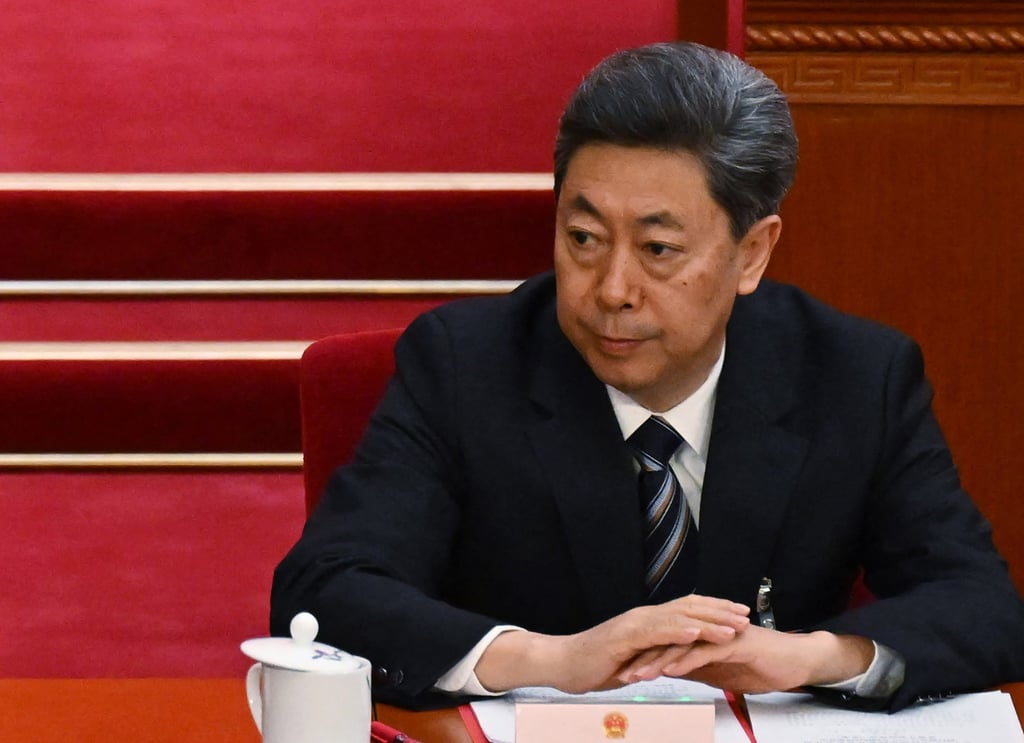In Xinjiang, China’s security chief calls for ‘normalisation of counterterrorism’
- On tour of the far western region, Chen Wenqing urges officials to ‘always give top priority to maintaining social stability’
- A day after, on Monday, public security ministry says the country hasn’t seen a terrorist attack in more than seven years

During a visit to the far western region from Wednesday to Sunday, Chen said authorities must “insist on cracking down on terrorist crimes in accordance with the law and make efforts to promote the normalisation of counterterrorism”, state news agency Xinhua reported on Sunday.

In Xinjiang, Chen visited the region’s capital, Urumqi, as well as Kashgar and the Kazakh prefecture of Ili. He urged local officials to “always give top priority to maintaining social stability” and to “accurately prevent and crack down on violent terrorist crimes”, according to Xinhua.
The report said Chen visited Khorgos, a town in Ili on the border with Kazakhstan, and the Tashkurgan Tajik autonomous county in the region’s southwest, which borders Tajikistan, Afghanistan and Pakistan. He told law enforcement officials to “strongly defend border security”.
A day after the visit, the Ministry of Public Security said in a statement on Monday that China had not seen a terrorist attack in more than seven years.
Decades of ethnic tensions and unrest in Xinjiang prompted Beijing to impose measures in 2016 that it said were aimed at cracking down on terrorist attacks. But the measures have led to allegations of widespread human rights abuses, including that at least 1 million Uygurs and other Muslim minorities were held in mass internment camps. Beijing denies the claims and has said the centres were for “vocational training”.